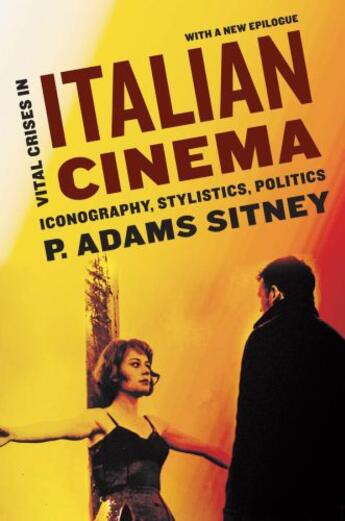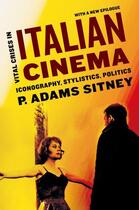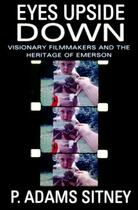-
Nombre de pages : (-)
-
Collection :
(-)
-
Genre :
(-)
-
Thème :
Non attribué
-
Prix littéraire(s) :
(-)
Résumé:
Examining the landmark works that ushered in Italy's golden age of cinema, P. Adams Sitney provides a stylish, historically rich survey of the epochal films made by Roberto Rossellini, Vittorio De Sica, Luchino Visconti, Federico Fellini, Michelangelo Antonioni, and others in the years after... Voir plus
Examining the landmark works that ushered in Italy's golden age of cinema, P. Adams Sitney provides a stylish, historically rich survey of the epochal films made by Roberto Rossellini, Vittorio De Sica, Luchino Visconti, Federico Fellini, Michelangelo Antonioni, and others in the years after World War II. Remarking on the period in 1957, Pier Paolo Pasolini wrote that its films reflected a "vital crisis" in Italian culture after the fall of Fascism. Sitney expands this conceit to demonstrate the multivalent social and political forces behind a range of movies made from the mid-1940s through the1960s that includes Paisa, La terra trema, Ladri di biciclette, L'Avventura, and La dolce vita. Throughout its pages, the book considers how the nation's cinema depicts the convergence of Christian and Resistance iconography; contemplates the debate over dialect and a national language; deploys cinematic effects for the purposes of political allegory; and incorporates insights from the psychoanalytic discourse that became popular in Italy during the fifties and sixties. This new edition includes an epilogue that extends the range of the study into the 1970s with discussions of Nanni Moretti's Io sono autaurchico, the Tavianis' Padre Padrone, and Ermanno Olmi's L'albero degli zoccoli.
Donner votre avis
















